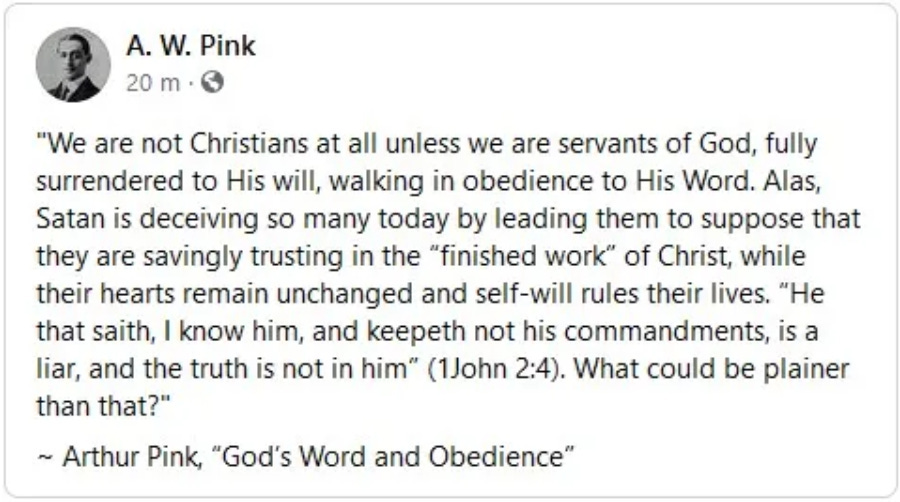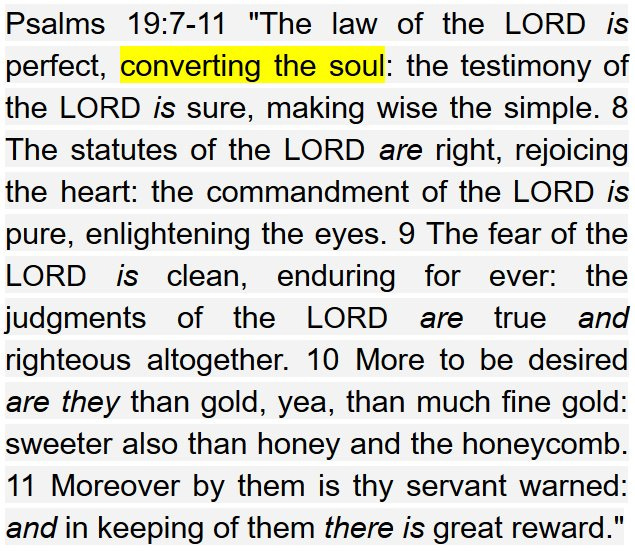What is a testimony? I’d like to start by quoting from this passage of scripture:
Hebrews 11:5 "By faith Enoch was translated that he should not see death; and was not found, because God had translated him: for before his translation he had this testimony, that he pleased God."
A testimony is an open attestation or affirmation of the facts of one’s life showing the evidence or proof of works, witnessed by God as a confirmation of one’s faith. We have an application of that in Hebrews 11:5, where Enoch had this testimony that pleased God. Because of Enoch’s faith, as witnessed by what he did in the eyes of the Lord, God translated him that he should not see death. What happened before Enoch’s translation?
Genesis 5:21-24 "¶ And Enoch lived sixty and five years, and begat Methuselah: 22 And Enoch walked with God after he begat Methuselah three hundred years, and begat sons and daughters: 23 And all the days of Enoch were three hundred sixty and five years: 24 And Enoch walked with God: and he was not; for God took him."
Before his translation, the bible tells us that Enoch walked with God after the age of sixty-five, when he begat Methuselah. He walked with God for three-hundred years, and this was the testimony he held that pleased God. Hebrews 11:6 goes on to tell us that without faith, it is impossible to please God: for he that cometh to God must believe that he is, and that he is a rewarder of them that diligently seek him. Enoch’s faith was evidenced by how he believed in God, and how he diligently sought after him. In fact, Enoch was not the only person who walked with God.
Genesis 6:9 "¶ These are the generations of Noah: Noah was a just man and perfect in his generations, and Noah walked with God."
Noah too, walked with God, and this verse was his testimony before God, in the eyes of the Lord:
Hebrews 11:7 "By faith Noah, being warned of God of things not seen as yet, moved with fear, prepared an ark to the saving of his house; by the which he condemned the world, and became heir of the righteousness which is by faith."
Just like Enoch, Noah had a testimony that pleased God, and this was the evidence of his faith in the eyes of the Lord: how that he by faith, being warned of God of the things not seen as yet, moved with fear, prepared an ark to the saving of his house; by the which he condemned the world, and became heir of the righteousness which is by faith. What is walking with God?
Deuteronomy 13:4 "Ye shall walk after the LORD your God, and fear him, and keep his commandments, and obey his voice, and ye shall serve him, and cleave unto him."
Walking with God is to fear God, and to keep his commandments, and to obey his voice, and to serve him, and to cleave unto him. How do we do that? In fact, this is just like how Joshua was commanded in Joshua 22:5 to take diligent heed to do the commandment and the law which Moses charged him, to love the LORD, and to walk in his ways, and to keep his commandments, and to cleave unto him, and to serve him with all his heart and all his soul. How do we do that? Prophet Micah explains in this verse:
Micah 6:8 "He hath shewed thee, O man, what is good; and what doth the LORD require of thee, but to do justly, and to love mercy, and to walk humbly with thy God?"
In order to do what Deuteronomy 13:4 teaches us to do, to “walk after the LORD your God,” God hath shown us in the 66 books of the Holy Bible, what is good and what is required of us. Knowing “what is good” and “what doth the LORD require of thee” is essential if we want to walk with God, and this knowledge must come from the 66 books of the Holy Bible. The Spirit of God will testify from the written word of God “what is good” and “what doth the LORD require of thee” to a believer. God will make it clear to him:
1 Corinthians 7:17 "But as God hath distributed to every man, as the Lord hath called every one, so let him walk. And so ordain I in all churches."
Knowing “what is good” and “what doth the LORD require of thee” is the knowledge that God hath distributed to every man that he hath called. According as God hath distributed, so let him walk. However, that does not mean that every man that God hath called is automatically an Enoch or a Noah. Notice it is “so let him walk,” which means that he is responsible for how he deals with the knowledge that God hath distributed to him. He alone is responsible for how he deals with the word of God. How he deals with the word of God will determine his walk with God, and that will become his testimony before God, in the eyes of the Lord. There are those who will walk humbly with God, and there are also those who will treat the word of God spitefully.
1 Thessalonians 2:12 "That ye would walk worthy of God, who hath called you unto his kingdom and glory."
There are those who would “walk worthy of God,” and those who would not. Many are called and few are chosen according to Matthew 22:14. That means that those who would “walk worthy of God” are the chosen of the LORD. Those would be the few on the narrow way that leadeth unto life according to Matthew 7:14. They are the few Enochs and Noahs in this world who pleased God because of their faith in the word of God, in contrast with the “many” who are also called, but would not “walk worthy of God.” Those would be the “many” on the broad way that leadeth to destruction. An example of such would be King Saul:
1 Chronicles 10:13-14 "¶ So Saul died for his transgression which he committed against the LORD, even against the word of the LORD, which he kept not, and also for asking counsel of one that had a familiar spirit, to enquire of it; 14 And enquired not of the LORD: therefore he slew him, and turned the kingdom unto David the son of Jesse."
This passage of scripture is a testimony from the Lord against King Saul who died for his transgression which he committed against the LORD, even against the word of the LORD, which he kept not. This passage of scripture also tells us how Saul asked counsel of the woman who had a familiar spirit, transgressing God’s commandment in Leviticus 19:31, Leviticus 20:6 and Deuteronomy 18:10-12. King Saul was among the many who were called, but God took his mercy from him according to 2 Samuel 7:15, because he did not “walk worthy of God.” He did not have a testimony that pleased God.
Luke 8:15 "But that on the good ground are they, which in an honest and good heart, having heard the word, keep it, and bring forth fruit with patience."
King Saul did not have an “honest and good heart” according to this verse from the Parable of the Sower. He knew the commandments of the Lord, but he did not keep it, for if he had kept the word, he would have brought forth fruit with patience. In fact, an “honest and good heart” is the only type of heart in the Parable of the Sower which would bring forth fruit. Against King Saul, prophet Samuel pronounced in this verse:
1 Samuel 15:23 "For rebellion is as the sin of witchcraft, and stubbornness is as iniquity and idolatry. Because thou hast rejected the word of the LORD, he hath also rejected thee from being king."
The evidence of King Saul’s rebellion against God would be played out toward the end of his life, when he turned to witchcraft: when he consulted with the woman who had a familiar spirit. Prior to that, however, notice Saul had rejected the word of the LORD, and God hath also rejected him from being “king.” This term “king” is a reference to the kings and priests in Revelation 1:5-6 reserved for born again believers. Witchcraft was what Saul truly believed in his heart, and God knew it even before he consulted with the woman who had a familiar spirit. Saul only pretended to believe in the word of God, which he kept not. BTW, that also shows us that the alternative of the word of God is witchcraft. To turn to witchcraft, one must first reject the word of God.
Proverbs 13:13 "Whoso despiseth the word shall be destroyed: but he that feareth the commandment shall be rewarded."
King Saul knew the commandment of the LORD, but he despised the word of God. Therefore, God destroyed him for his testimony which pleased not the LORD. Enoch and Noah walked with God because they feared the commandment of the LORD, and God rewarded them for their testimonies which pleased him. Enoch and Noah were not the only ones with testimonies that pleased the LORD. More examples of such testimonies can be found in Hebrews 11. Read the testimonies of Abraham, Sarah, Moses, David and others. Likewise, there are also testimonies in the likes of King Saul’s which pleased not the Lord, testimonies such as these:
1 Kings 15:1-3 "Now in the eighteenth year of king Jeroboam the son of Nebat reigned Abijam over Judah… And he walked in all the sins of his father, which he had done before him: and his heart was not perfect with the LORD his God, as the heart of David his father."
2 Kings 21:19-22 "¶ Amon was twenty and two years old when he began to reign, and he reigned two years in Jerusalem… And he did that which was evil in the sight of the LORD, as his father Manasseh did. 21 And he walked in all the way that his father walked in, and served the idols that his father served, and worshipped them: 22 And he forsook the LORD God of his fathers, and walked not in the way of the LORD."
There are many such negative testimonies in the Old Testament recorded for us to read. What your heart does with the word of God will determine your walk with God: whether you will walk in the way of the LORD, or you will walk in your sins against God. What you do to the word of God will be your testimony before God, when you shall stand before him in judgment, just like what Jesus tells us in this verse:
John 12:48 "He that rejecteth me, and receiveth not my words, hath one that judgeth him: the word that I have spoken, the same shall judge him in the last day."
This phrase “the word that I have spoken” is a reference to every word of God in the 66 books of the Holy Bible, and it is precisely this book of the law by which every man shall be judged in the last day. How you treat the word of God will be your testimony when you shall stand before God in judgment in the last day. Do you have a testimony that pleased God, testimonies in the likes of Enoch, Noah, Abraham, Sarah, Moses, David and others we read in Hebrews 11? How do you see yourself appearing in the eyes of the Lord? Is God pleased with you? These are the questions we must answer before our appointment with God:
Hebrews 9:27 "And as it is appointed unto men once to die, but after this the judgment:"
The day of our death is the last day of our lives on earth. It is our appointment with God. It is the day when we shall all stand before God in judgment, and a verdict based on our testimonies in the eyes of the Lord shall be pronounced. We have a picture of that in Luke 16: the Rich Man and Lazarus the Beggar. The Rich Man ended up in hell where the worm dieth not and the fire is not quenched, whereas Lazarus the Beggar went to the bosom of Abraham, where he was comforted. How did they end up differently? Hebrews 9:27 tells us that as it is appointed unto men once to die, but after this the judgment. The judgment was made, and the verdict was pronounced. That was how the Rich Man ended up in hell fire to be tormented for ever and ever, and how Lazarus the Beggar ended up in the bosom of Abraham. They both had their own testimonies before God, albeit very different. Solomon tells us:
Ecclesiastes 12:13-14 "¶ Let us hear the conclusion of the whole matter: Fear God, and keep his commandments: for this is the whole duty of man. 14 For God shall bring every work into judgment, with every secret thing, whether it be good, or whether it be evil."
This passage of scripture tells us that God shall bring every work into judgment, with every secret thing, whether it be good, or whether it be evil. Your testimony before God will reveal how you treat the word of God, whether you fear God, and keep his commandments, or you despised the word of God, and fear not his commandments. Only the good ground of an “honest and good heart” (Luke 8:15) will keep the seed of the word of God, and bear fruit with patience. It is the fruit that you bear that will testify for you when you stand before God in judgment:
Galatians 5:22-23 "But the fruit of the Spirit is love, joy, peace, longsuffering, gentleness, goodness, faith, 23 Meekness, temperance: against such there is no law."
Faith is a fruit of the Spirit according to Galatians 5:22-23. God will be looking for “faith” in your testimony when you shall stand before him in judgment, the same faith we read in the Hall of Faith of the saints in Hebrews 11. It is either you live forever because of your faith in the Word of God (Jesus Christ), or you perish forever because of your rejection the Word of God (Jesus Christ) according to the gospel that you have received. The sinner’s prayer you prayed won’t make a difference.
There is a false doctrine out there called “decisionism” which teaches that a person is saved based on the outward gestures he demonstrates rather than the inward conversion of his heart. It was a liberal theology developed by Charles G. Finney in the early 1800s. Today, decisionism dominates in churches all over the world. Instead of expounding from “Moses and the prophets,” modern churches made things a lot easier for sinners by taking a shortcut and jump straight to the procedures:
Admit you're a sinner;
Realize the penalty of sin;
Believe that Jesus Christ died, was buried and rose again for you;
Trust Jesus Christ alone as your saviour.
Even though it is not explicitly stated in this list, it usually starts with a “decision” to accept Christ as Lord and Saviour, and it normally ends with a sinner's prayer. Nothing is changed about that person after he decided to give his heart to Jesus Christ and voluntarily walked through a set of procedures, because that is NOT the way a person is saved according to the bible. Therefore, he continues to remain in his sin, all the while thinking that he has been born again, when in fact, he is still lost and is on his way to hell! That is what decisionism is about in a nutshell.
True conversion is the law of God “converting the soul” according to Psalms 19:7. That is the kind of conversion that a born again believer will encounter at some point in his life. Jesus said in:
Matthew 13:15 "For this people’s heart is waxed gross, and their ears are dull of hearing, and their eyes they have closed; lest at any time they should see with their eyes, and hear with their ears, and should understand with their heart, and should be converted, and I should heal them."
Therefore, to be converted means:
the heart is no longer waxed gross, but it now understands the word of God;
the ears are no longer dull of hearing, but they now hear the voice of the LORD;
the eyes are no longer closed but are now opened so that they are no longer blind to the things of the Spirit of God.
Notice the word “converting” in Psalms 19:7 is present-continuous tense? That means that conversion is an ongoing thing for a born again believer. A born again believer is saved by the grace of God through faith in every word of God, and the same word “faith” is also found in 2 Corinthians 1:24 "… for by faith ye stand." Without faith, we cannot expect to stand in the day of judgment, and apart from faith, we cannot be saved. This is just like Shadrach, Meshach and Abed-nego who stood against the king's order to fall down and worship the golden image. They had something in them which sets them apart from the rest of the Jews, and that something was called “faith.”
Exodus 20:3 "Thou shalt have no other gods before me."
A born again believer fear God more than he fears man, and to fear God is to fear the words of the LORD. It was the fear of the LORD and faith in the word of God that has empowered Shadrach, Meshach and Abed-nego to stand against the king’s order without fear for their own lives, to do that which the great majority of the Christians today won’t do. When Shadrach, Meshach and Abed-nego stood while everyone else fell before the golden image which king Nebuchadnezzar had made, they were inadvertently known by their fruits. That was their testimony before God, and God was pleased with them.
Revelation 12:11 "And they overcame him by the blood of the Lamb, and by the word of their testimony; and they loved not their lives unto the death."
Likewise for those Jews with Shadrach, Meshach and Abed-nego who had forgotten the law of their God. They too, had their testimony before God. Without real faith, one cannot stand, and apart from real faith, one cannot be saved. The same may not be said for someone who may be attending church every week, but when called to stand for the word of God, they turn to their own wisdom. They turn to their “common sense.” They turn to their friends and family for advice. They turn to other Christians for advice. Finally, they turn to their pastors for advice, who in turn receive their advisory from the government. They turn to everyone for advice, but never the 66 books of the Holy Bible. The word of God means absolutely nothing to these Christians, and it will be evident in their works, even as a tree is known by his own fruit. In the case of Shadrach, Meshach and Abed-nego, their government was king Nebuchadnezzar.
Ecclesiastes 7:1 "A good name is better than precious ointment; and the day of death than the day of one’s birth."
Proverbs 22:1 tells us that a “good name” is rather to be chosen than great riches. The day of death for a born again believer is better than the day of his birth, because he has a good name before the Lord. He has a good testimony before God. His reward will be far greater than all the earthly riches one can desire. To a born again believer, however, there is nothing better than to hear Jesus say unto him: “Well done, thou good and faithful servant.” (Matthew 25:21) Likewise, there is nothing more fearful than to hear his Lord say unto him: “Depart from me, ye cursed, into everlasting fire, prepared for the devil and his angels.” (Matthew 25:41) Either this, or “I never knew you: depart from me, ye that work iniquity.” (Matthew 7:23) It is a good name before the Lord that will matter in all eternity. That’s why a good testimony before the Lord is so important for a believer.

















Share this post